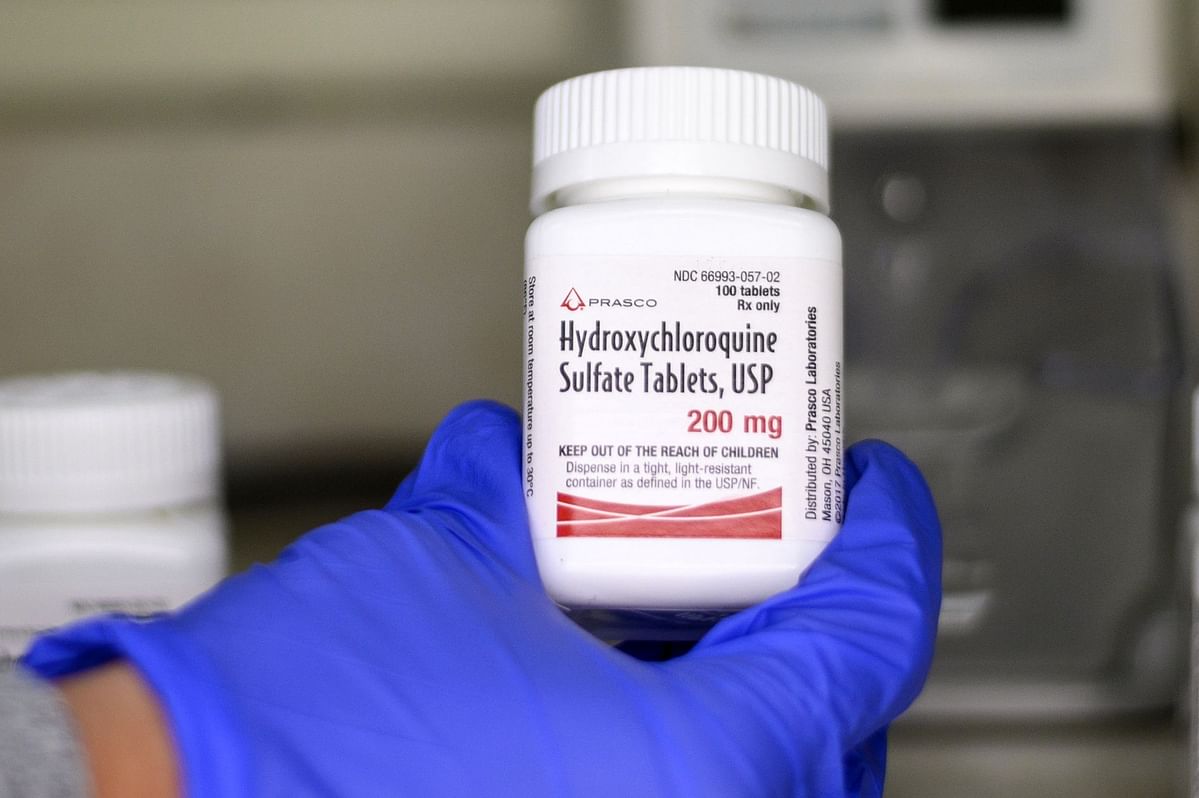
Hydroxychloroquine useless for COVID-19 treatment: Oxford prof
A major UK trial testing a range of drugs for their potential in treating the coronavirus concluded on Friday (June 5) that hydroxychloroquine has "no beneficial effect" in patients hospitalised with COVID-19.

A major UK trial testing a range of drugs for their potential in treating the coronavirus concluded on Friday (June 5) that the US President Donald Trump endorsed “game changer” hydroxychloroquine has “no beneficial effect” in patients hospitalised with COVID-19.
Hydroxychloroquine and chloroquine, used as antimalarial drugs, have been in the headlines as President Trump repeatedly touted their benefits to fight coronavirus.
The Chief Investigators of the Randomised Evaluation of COVID-19 Therapy (RECOVERY) trial, being run by the University of Oxford, said they have stopped the hydroxychloroquine trial with immediate effect as a result of the findings.
“We have concluded that there is no beneficial effect of hydroxychloroquine in patients hospitalised with COVID-19,” Professors Peter Horby and Martin Landray said in a joint statement.
“We have, therefore, decided to stop enrolling participants to the hydroxychloroquine arm of the RECOVERY trial with immediate effect. We are now releasing the preliminary results as they have important implications for patient care and public health,” they said.
Related news: ICMR issues revised advisory on use of hydroxychloroquine
“This result should change medical practice worldwide. We can now stop using a drug that is useless,” they told the reporters.
As part of their trial, a total of 1,542 patients were randomised to hydroxychloroquine and compared with 3,132 patients randomised to usual care alone. There was no significant difference in the primary endpoint of 28-day mortality and there was also no evidence of beneficial effects on hospital stay duration or other outcomes.
“These data convincingly rule out any meaningful mortality benefit of hydroxychloroquine in patients hospitalised with COVID-19,” the researchers said.
Expectation from the antimalarial drug raised across the globe after Trump vocally endorsed it as a potential game changer amid the pandemic since the decades-old drug according to the experts could have been a cheap and widely available tool, if proven to work.
Last month, a study published in medical journal The Lancet, which was withdrawn on June 5, pointed out safety issues while halting its trials.
The Oxford University trial was launched in March into a range of potential drugs to fight the deadly virus, including hydroxychloroquine, and proceeded at what scientists have said was “unprecedented speed”, enrolling over 11,000 patients from 175 National Health Service (NHS) hospitals in the UK.
An independent Data Monitoring Committee has been reviewing the emerging data and recommended the chief investigators review the unblinded data on the hydroxychloroquine arm of the trial this week.
Related news: Use of hydroxychloroquine shows no benefit for treating COVID-19 patients: Report
Horby, Professor of Emerging Infectious Diseases and Global Health in the Nuffield Department of Medicine at the University of Oxford and Chief Investigator for the RECOVERY trial, said: Hydroxychloroquine and chloroquine have received a lot of attention and have been used very widely to treat COVID-19 patients despite the absence of any good evidence.
“The RECOVERY trial has shown that hydroxychloroquine is not an effective treatment in patients hospitalised with COVID-19. Although it is disappointing that this treatment has been shown to be ineffective, it does allow us to focus care and research on more promising drugs.”
His colleague, Landray, who is Professor of Medicine and Epidemiology at the Nuffield Department of Population Health, University of Oxford, and Deputy Chief Investigator, added: There has been huge speculation and uncertainty about the role of hydroxychloroquine as a treatment for COVID-19, but an absence of reliable information from large randomised trials.
“Todays preliminary results from the RECOVERY trial are quite clear hydroxychloroquine does not reduce the risk of death among hospitalised patients with this new disease. This result should change medical practice worldwide and demonstrates the importance of large, randomised trials to inform decisions about both the efficacy and the safety of treatments.”
The novel coronavirus has infected more than 6.4 million people and killed nearly 400,000 worldwide.
Related news: India’s malaria is ‘helping’ nations combat COVID-19: Know how
(With inputs from agencies)

